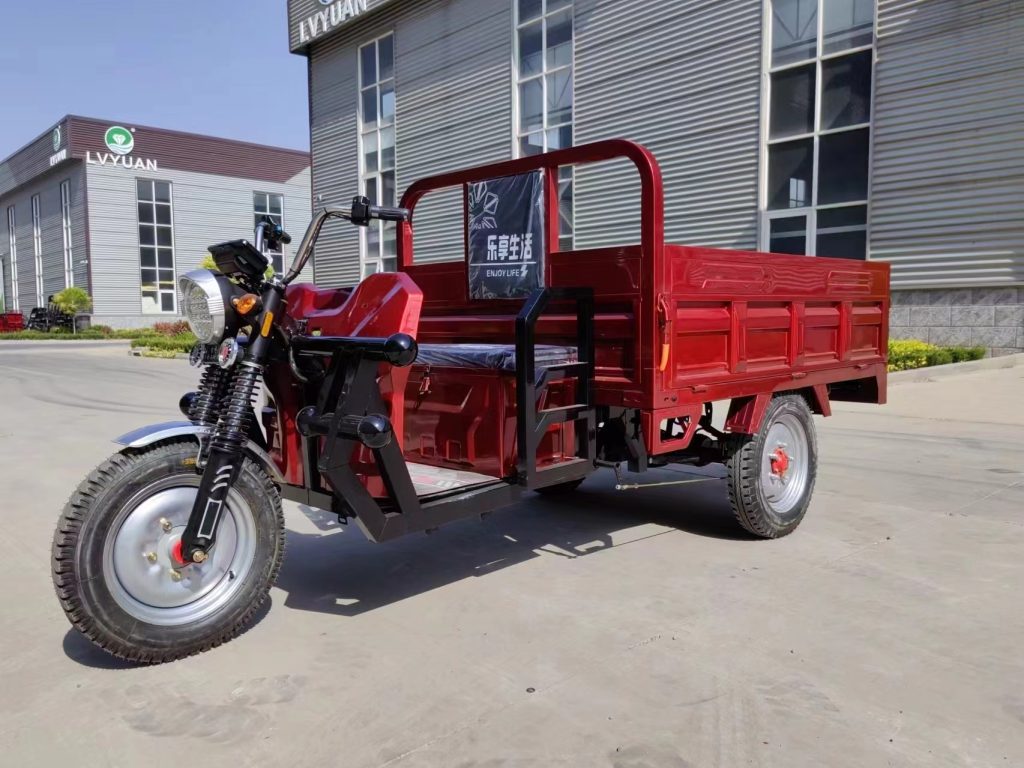Urban transport has been changing into more efficient and cleaner modes in recent years. Among those, electric tricycles, and even more precisely electric cargo tricycles, are a feasible choice over the traditional gasoline vehicle. For personal use or an electric tricycle for cargo transportation, these eco-friendly cars have numerous cost, environmental, and mobility advantages.
If you are contemplating replacing your everyday car or truck with an electric tricycle, here’s why it may be the most in-demand vehicle.
1. Cost-Effectiveness
The most compelling case for an electric tricycle over a traditional car is the staggering cost savings.
Lower Upfront Costs
Electric tricycles, especially electric cargo tricycles, will never be anywhere near as costly as cars or trucks. A typical delivery truck could be in the thousands, and an electric tricycle for cargo transportation is an inexpensive option that doesn’t compromise any functionality.
Lower Fuel and Maintenance Costs
Compared to gasoline-powered vehicles, electric tricycles use rechargeable batteries, reducing fuel costs. And with their simple mechanical design, fewer parts that move mean less maintenance. No oil filter changes, no costly transmission system—just low-priced, reliable transportation.
Government Incentives
Many governments worldwide offer subsidies, tax credits, or incentives for electric vehicles (EVs), like an electric tricycle for cargo transportation. These incentives further reduce the cost of ownership.
2. Environmentally Friendly and Sustainable
As the world is more and more concerned with global warming and air pollution, choosing an electric tricycle is a step towards a cleaner future.
Zero Emissions
In contrast to traditional automobiles that emit bad greenhouse gases, electric tricycles have no tailpipe emissions. It is ideal for use in the city, where clean air is greatly important.
Energy Efficiency
Electric motors are more efficient than internal combustion engines. While gas engines lose a lot of energy in the form of heat, e-trikes convert nearly all their energy into movement, thus a more intelligent choice in terms of sustainability.
Less Noise Pollution
Electric tricycles are nearly silent compared to loud gasoline engines, which assist in lowering noise levels and making urban streets quieter and less cacophonous.
3. Convenience and Maneuverability
Traveling through congested city roads is a hassle with traditional vehicles. That is where the electric cargo tricycles come in handy.
Space-Saving and Agile
Electric tricycles are space-light and more maneuverable than vans or automobiles, and therefore simple to push through traffic and employ on narrow roads. This makes them perfect for offering the last miles within urban areas.
Easy Parking
It is hard and expensive to park a car in the middle of a city. E-trikes take up little space, typically occupying a bike lane or a designated parking area for e-trikes alone. Cars cannot use them.
No License Required (In Most Places)
In other countries, electric cargo tricycles do not require licensure to operate, thus are accessible to more people, such as small business owners and delivery personnel.
4. Multi-Purpose Cargo and Commercial Use Capacity
Electric cargo tricycles are not only perfect for personal transport, now they are also transforming small-scale logistics.
Great Load Capacity
New electric cargo tricycles have a high weight capacity of between 500 kg (1,100 lbs) and more. This is ideal for:
- Grocery shopping deliveries
- Post and courier services
- Small business logistics (food vendors, repair services)
- Refuse collection and recycling
Fully Customizable Storage Space
Numerous e-trikes also have modular cargo beds, and businesses can have the storage configured based on their need, whether a secure enclosed box or an open flatbed for bulk hauling.
5. Reliability and Durability
Some doubt the reliability of electric tricycles, but advances in motor and battery technology through research and development have made them very reliable.
Long-Lasting Batteries
Lithium-ion batteries available for purchase today offer a range of 80-100 km (50-60 miles) on a single charge with fast recharging options. For city commuting and delivery within short distances, the range is more than sufficient.
Low Maintenance
With fewer mechanical components compared to a car, electric tricycles require minimal service. Braking system, tires, and battery condition usually require only visual checks, nothing more.
Universal Capabilities for Various Terrains
Built for city application, the majority of electric tricycles for cargo transportation possess heavy-duty frames and suspensions that enable riding over rough roads and light off-road use.
Conclusion
Whether you are a consumer looking for an affordable commuting solution or a business looking for an efficient delivery solution, electric tricycles—more specifically, electric cargo tricycles—offer an attractive alternative to traditional vehicles.
Who Should Consider an Electric Tricycle?
- Delivery businesses looking to save on gas and maintenance costs
- Small business owners who require inexpensive cargo transportation
- Eco-friendly commuters looking for a green transportation alternative
- City dwellers are tired of traffic and parking hassles
With their minimal operating cost, environmental friendliness, and unmatched agility, electric tricycles are leading the way to smart, green urban mobility.

 Instant
Quote
Instant
Quote Email
Us
Email
Us